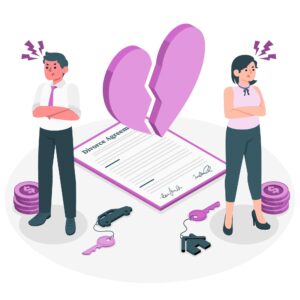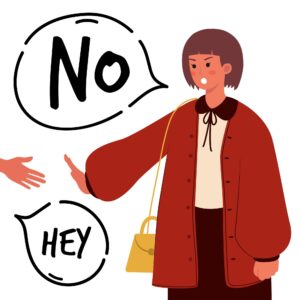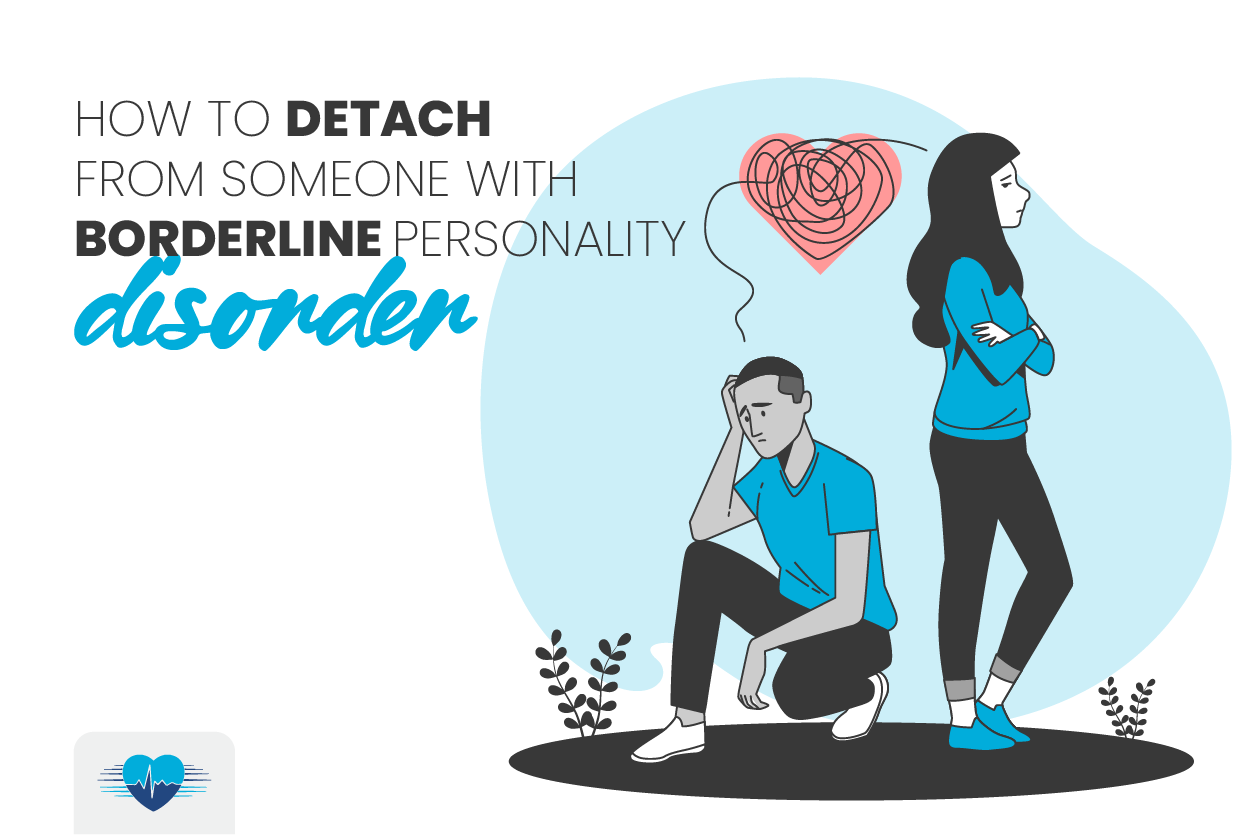Do you want to know how to detach from someone with borderline personality disorder?
It is never easy to decide to end a relationship. It is even more complicated when the person you are splitting up with has borderline personality disorder (BPD).
At Today Telemedicine, our therapy expert treat with anger issue, relationship issues if you want to concern, please contact us.
People with BPD often have volatile emotions, which can make breakups very rough.
Some of the tips in this article will help you get through this challenging process.
What is Borderline Personality Disorder?

Borderline personality disorder, or BPD, is a mental illness. It could also be called a personality disorder that makes people unstable emotionally. People who have BPD have mood swings and may do dangerous things.
They also have trouble keeping their feelings in check. People with BPD might have trouble going about their daily lives, doing what they need to do, and handling tough situations.
It might be hard for them to keep jobs and relationships. Some people deal with their problems by eating, drinking, or using other drugs.
It is critical to seek treatment because they have a higher risk of suicide. They are also more likely to hurt themselves, be depressed, or have a problem with drugs or alcohol.
People who have BPD may have significant changes in their mood, irrational anger, and a constant sense of emptiness.
By learning about these symptoms and how they affect a person’s behaviour, you can better understand how they might feel and act after a breakup.
How to Detach from Someone with Borderline Personality Disorder?
If you want to end your relationship with someone who has BPD, you need to plan ahead.
Knowing that the person might be overreacting can help you get ready for the change on an emotional level.
Talking to a mental health professional might help. They can help you figure out how to best explain your choice and deal with the reactions that follow.
You should also have people around you who can help you. During this hard time, friends, family, or support groups can help you feel better.
Another important thing to think about is having a place to stay in case you need to get away from the situation.
Life After BPD Divorce

When a relationship ends, it is essential to set limits. Because of the fear of being left alone that comes with BPD, the person may try to get back in touch or start a new relationship.
Hold firm and consistent boundaries as you stick to your decision.
Take good care of your mind. It can be hard on the emotions to end a relationship with someone who has BPD.
Giving yourself time to heal, work through your feelings, and care for yourself is essential.
You might want to go to therapy or counselling to help you deal with your emotions, such as guilt, sadness, or anger.
A professional can also help you figure out how to handle future interactions with the person you left behind.
Ensure Safety
In some situations, ending a relationship with someone who has BPD can get so bad that safety is at risk.
This is often the case if the person you are leaving has a history of being violent or aggressive.
In these situations, the most important thing is to take steps to protect yourself.
If you are afraid of being harassed or retaliated against, you might want to tell the police about what is going on.
Make sure you also tell close family and friends about what is going on so they can help and watch out for you.
Planning Future Interactions
If you have to keep talking to the person you have left—for example, because you share custody of the kids—it is important to make rules for these talks.
Setting clear limits is very important. Face-to-face interactions can be stressful for someone with BPD or make them too emotional. If this happens, you might want to try email or text messages instead.
Try to keep your conversations short and to the point. Tell the person with BPD what the rules are if they try to get you involved in an emotional discussion or fight.
Why Emotional Independence is Important?
Lastly, making sure you can handle your own emotions is an essential part of ending a relationship with someone who has BPD.
These include recognizing and dealing with your feelings, knowing your value and worth, and ensuring your happiness and self-esteem are not tied to the person you have left.
One of the best ways to become emotionally independent is to go to therapy.
Counselors can help you deal with your feelings, boost your confidence, and learn new ways to handle any guilt or responsibility you may still feel.
If you want to continue the relationship, you must practice saying no. Let’s talk about it in detail.
How to Say “No”

Saying no to someone with borderline personality disorder requires a detailed and understanding approach.
You can set clear boundaries without making things worse or hurtful by using the techniques and strategies in this section.
Not only should you say “no,” but you should do it in a way that shows you care about their feelings as well as your own.
- Empathetic Assertion: Before setting your boundary, let them know that you understand their situation or feelings. For example, “I know you are upset, but I need some alone time right now.”
- Consistency and Calmness: Keeping your tone and message calm can help reduce volatility. Do not match their level of emotional intensity, and if you need to, remind them of your boundaries.
- Avoid Arguing: When setting a boundary, avoid arguing or over justifying your decision. Simply be clear and firm about your boundary.
- Say “I” Statements: Making your boundary a personal need can help you feel less defensive. You could say something like, “I need some time to relax after work” instead of “You are too demanding.”
- Encourage Good Interactions: Encouraging good behavior can help make things better between people. If they follow a rule, let them know you appreciate it.
- Get Help from a Professional: Therapists can help you in ways unique to your case and the person with BPD. They can also support you and help you figure out how to deal with challenging situations.
- Caring for Yourself: It is essential because setting limits can be hard on emotions. Taking care of your mental health and doing things that help you unwind and recharge is very important
Final Thoughts about How to Detach from Someone with Borderline Personality Disorder?
Leaving someone with BPD is challenging and can cause a lot of emotional problems.
It is a difficult situation, but you can get through it by learning about BPD, getting ready for the breakup, being clear about your decision, and making sure you are safe.
Taking care of your emotional well-being first and getting professional help can also help you improve.
Remember that putting your mental and emotional health first is not only okay, it is necessary.
FAQs
How to protect yourself from someone with borderline personality disorder?
- Make your limits clear, and calmly talk about them
- Take care of yourself and ask friends, family, or a therapist for help
- Please learn more about BPD so you can better understand how people with it act
How do you calm down someone with borderline personality disorder?
- Stay calm and let them know you understand their feelings without encouraging the wrong behaviour
- To help them deal with their problems, please suggest that they do deep breathing or mindfulness exercises
- Show understanding and support, but be clear about your limits
How to work with someone with borderline personality disorder?
It is essential to set clear goals and expectations at work. Talk to each other honestly and constructively, and focus on facts instead of feelings.
Support and encourage them while also pushing them to be responsible.
What happens when you leave someone with borderline personality disorder?
It can make you feel very strong emotions like anger, sadness, or fear of being left alone. They might do things without thinking, or their symptoms might get worse. The other thing is that leaving may also be a chance for both people to grow and heal.





No comment